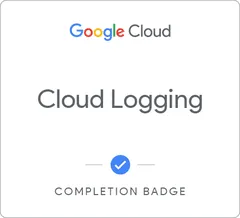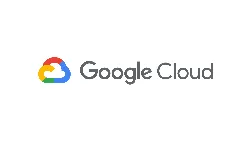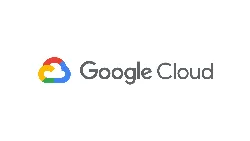
Cloud Logging 
Discover the fundamentals of Cloud Logging ▼
ADVERTISEMENT
Course Feature
![]() Cost:
Cost:
Free
![]() Provider:
Provider:
Qwiklabs
![]() Certificate:
Certificate:
Free Certification
![]() Language:
Language:
English
![]() Start Date:
Start Date:
On-Demand
Course Overview
❗The content presented here is sourced directly from Qwiklabs platform. For comprehensive course details, including enrollment information, simply click on the 'Go to class' link on our website.
Updated in [May 19th, 2023]
Cloud Logging is a fully managed service that provides users with the ability to store, search, analyze, monitor, and alert on log data and events from Google Cloud. This course provides an overview of the fundamentals of Cloud Logging, giving users the opportunity to gain hands-on experience with the service. Through the labs in the course, users will learn how to use Cloud Logging to maximize their learning experience and gain insight into how they can use Cloud Logging in their own Google Cloud environment.
[Applications]
After completing this course, users can apply Cloud Logging to their own Google Cloud environment to store, search, analyze, monitor, and alert on log data and events. They can also use Cloud Logging to gain insights into their applications and systems, and to troubleshoot issues quickly. Additionally, users can use Cloud Logging to monitor their applications and systems in real time, and to set up alerts for any changes or anomalies.
[Career Paths]
1. Cloud Logging Engineer: Cloud Logging Engineers are responsible for designing, developing, and maintaining cloud logging systems. They must be knowledgeable in cloud technologies, such as Google Cloud Platform, and have experience with log management tools. They must also be able to troubleshoot and debug issues related to cloud logging. As cloud computing continues to grow, the demand for Cloud Logging Engineers is expected to increase.
2. Cloud Logging Analyst: Cloud Logging Analysts are responsible for analyzing log data and events from Google Cloud. They must be able to identify patterns and trends in the data and use this information to make informed decisions. They must also be able to develop strategies to optimize the performance of cloud logging systems. As cloud computing continues to grow, the demand for Cloud Logging Analysts is expected to increase.
3. Cloud Logging Developer: Cloud Logging Developers are responsible for developing and maintaining cloud logging systems. They must be knowledgeable in cloud technologies, such as Google Cloud Platform, and have experience with log management tools. They must also be able to troubleshoot and debug issues related to cloud logging. As cloud computing continues to grow, the demand for Cloud Logging Developers is expected to increase.
4. Cloud Logging Administrator: Cloud Logging Administrators are responsible for managing and maintaining cloud logging systems. They must be knowledgeable in cloud technologies, such as Google Cloud Platform, and have experience with log management tools. They must also be able to troubleshoot and debug issues related to cloud logging. As cloud computing continues to grow, the demand for Cloud Logging Administrators is expected to increase.
[Education Paths]
1. Bachelor of Science in Computer Science: This degree path provides students with a comprehensive understanding of computer science fundamentals, including programming, software engineering, and data structures. Students will also learn about cloud computing, networking, and security. This degree path is ideal for those looking to pursue a career in cloud computing, as it provides the necessary skills and knowledge to develop and manage cloud-based applications and services.
2. Master of Science in Cloud Computing: This degree path provides students with an in-depth understanding of cloud computing technologies and architectures. Students will learn about cloud security, scalability, and performance, as well as how to design and develop cloud-based applications. This degree path is ideal for those looking to pursue a career in cloud computing, as it provides the necessary skills and knowledge to develop and manage cloud-based applications and services.
3. Master of Science in Data Science: This degree path provides students with an in-depth understanding of data science fundamentals, including data mining, machine learning, and data visualization. Students will also learn about cloud computing, networking, and security. This degree path is ideal for those looking to pursue a career in cloud computing, as it provides the necessary skills and knowledge to develop and manage cloud-based applications and services.
4. Doctor of Philosophy in Cloud Computing: This degree path provides students with an advanced understanding of cloud computing technologies and architectures. Students will learn about cloud security, scalability, and performance, as well as how to design and develop cloud-based applications. This degree path is ideal for those looking to pursue a career in cloud computing, as it provides the necessary skills and knowledge to develop and manage cloud-based applications and services.
The demand for cloud computing professionals is growing rapidly, and these degree paths provide the necessary skills and knowledge to develop and manage cloud-based applications and services. As cloud computing continues to evolve, these degree paths will continue to be in high demand.
Course Syllabus
Fundamentals of Cloud Logging
In this hands-on lab, you learn how to use Cloud Logging to accumulate application logs in a single place, filter to reach the required log, understand how to create logs based metrics for advanced analysis, examine the audit logs use case, and export logs for compliance and/or advanced analysis needs.Using BigQuery and Cloud Logging to Analyze BigQuery Usage
In this lab you view the BigQuery logs inside Cloud Logging, set up a sink to export them back into BigQuery, and then use SQL to analyze the logs.Cloud Logging on Kubernetes Engine
In this lab you will deploy a sample application to Kubernetes Engine that forwards log events to Cloud Logging.Monitoring and Logging for Cloud Functions
In this hands-on lab we take a look through some of the information provided by the Cloud Monitoring tools, and teach some of the concepts you will need to know to take advantage of Cloud Monitoring effectively.warning Creating and Alerting on Logs-based Metrics
In this hands-on lab we take a look through some of the information provided by the Cloud Monitoring tools, and teach some of the concepts you will need to know to take advantage of Cloud Monitoring effectively.Course Provider

Provider Qwiklabs's Stats at AZClass
Discussion and Reviews
0.0 (Based on 0 reviews)
Explore Similar Online Courses

Real World Rails 5 Programming for Web Developers

Improve Your Research Skills

Python for Informatics: Exploring Information

Social Network Analysis

Introduction to Systematic Review and Meta-Analysis

The Analytics Edge

DCO042 - Python For Informatics

Causal Diagrams: Draw Your Assumptions Before Your Conclusions

Whole genome sequencing of bacterial genomes - tools and applications

Serverless Data Processing with Dataflow: Develop Pipelines

Serverless Data Processing with Dataflow: Foundations

IBM Cloud Essentials
 Related Categories
Related Categories
 Popular Providers
Popular Providers
Quiz
 Submitted Sucessfully
Submitted Sucessfully
1. What is Cloud Logging?
2. What is the purpose of the labs in the Quest?
3. What is the benefit of using Cloud Logging?


Start your review of Cloud Logging